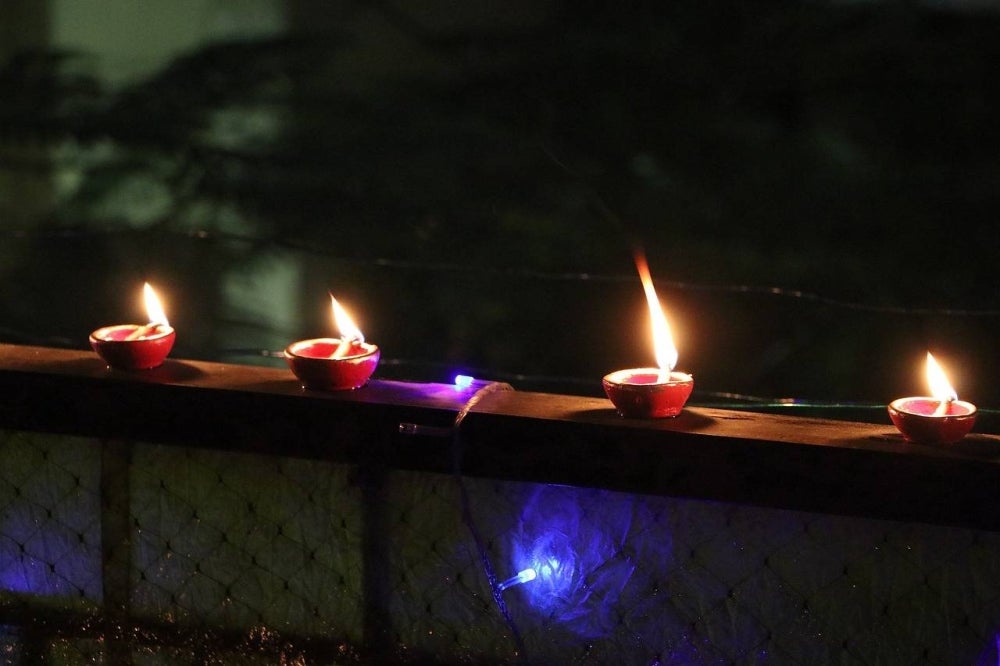Decoding Deepavali and Diwali: A celebration of lights

DEEPAVALI and Diwali, although spelled differently, are both commemorated as the "Festival of Lights."
Both are known as the 'Feast of Lights,' but the more precise term is Deepavali, which is derived from Sanskrit and means 'a line of lamps.
However, in North India, the word Diwali is commonly used. The word Diwali is derived from the Sanskrit word Dīpāvali.
Taking it apart, the word “dipa” means “light” or “lamp” whereas the word “avali” means “a series” or “row”.
Together, they signify a series of lights, giving rise to the names Deepavali in the South and Diwali in the North for this vibrant celebration.
So, let's delve into the difference between Deepavali and Diwali.
Deepavali is a four-day celebration, with each day holding a special significance.
Naraka Chaturdasi Day
This marks the triumph of Lord Krishna over the demon Naraka. As a symbol of victory, people participate in an early morning bath before sunrise, under the shimmering celestial bodies.
Lakshmi Puja
The second day is dedicated to Goddess Lakshmi, who emerged from the Ocean of Milk (Kshira Sagara). Lakshmi Puja continues to be practiced today.
Kartika Shuddha Padwa, or Bali Padyami
This day honours Lord Vishnu in his Vamana incarnation, when he defeated the demon king Bali. It's also a celebration of Bali's return to Earth for his worship and benevolent deeds. This day marks the beginning of the Hindu month of Kartika.
Yama Dvitiya
On the fourth day, Yama, the Lord of Death, feasted with his sister Yami, who applied a tilak to his forehead for his well-being. In return for this act of sisterly kindness, brothers offer gifts to their sisters.
Meanwhile, Diwali is a five-day celebration in North India.
Before Diwali - Dhanteras Marking
Lord Ram's return to Ayodhya after his exile. The festivities commence two days before the main Diwali day with "Dhanteras." Dhanteras commemorates the birth of Dhanvantari, the divine healer of idols, with "Dhan '' symbolising wealth, akin to South India's Goddess Lakshmi. It's also the start of the business accounting year.
Choti Diwali
The day following Dhanteras is "Choti Diwali" or "Kali Chaudas," coinciding with South India's Deepavali. It's the second day in North India's celebration, dedicated to the vanquishing of the demon Narakasura by Lord Krishna.
Diwali and Lakshmi Puja
The third day is "Diwali and Lakshmi Puja," celebrating Lord Rama's return to Ayodhya after defeating Ravana. Both North and South India perform Lakshmi Puja on this day, with a shared myth of Lakshmi emerging from the Ocean of Milk.
Govardhan Puja
The day after Diwali is "Govardhan Puja '' or "Annikut," commemorating Krishna's victory over Indra, the god of rain and thunder, by lifting the Govardhan hill. In South India, it corresponds to "Bali Padyami," signifying the return of King Mahabali to Earth.
Bhai Dooj
The fifth and final day is "Bhai Dooj," similar to Deepavali's "Yama Dvitiya." Sisters invite their brothers home, praying for their success by marking their foreheads with a symbol of prosperity. Brothers reciprocate with material gifts.
In a culturally diverse nation like Malaysia, it is important to note that the Malaysian Indian community is diverse. They are comprised of Tamils, Sikhs, Punjabis, Telugus, Malayalees, and many other ethnic groups within the community.
Whether you prefer to call it Deepavali or Diwali, the essence of it remains the same: embracing light over darkness, finding the good in others, and spreading positivity.
Let's conclude this year with a joyous celebration filled with laughter, delectable Indian treats, and spectacular fireworks. May this Festival of Lights shower you with boundless happiness and love.
Download Sinar Daily application.Click Here!















